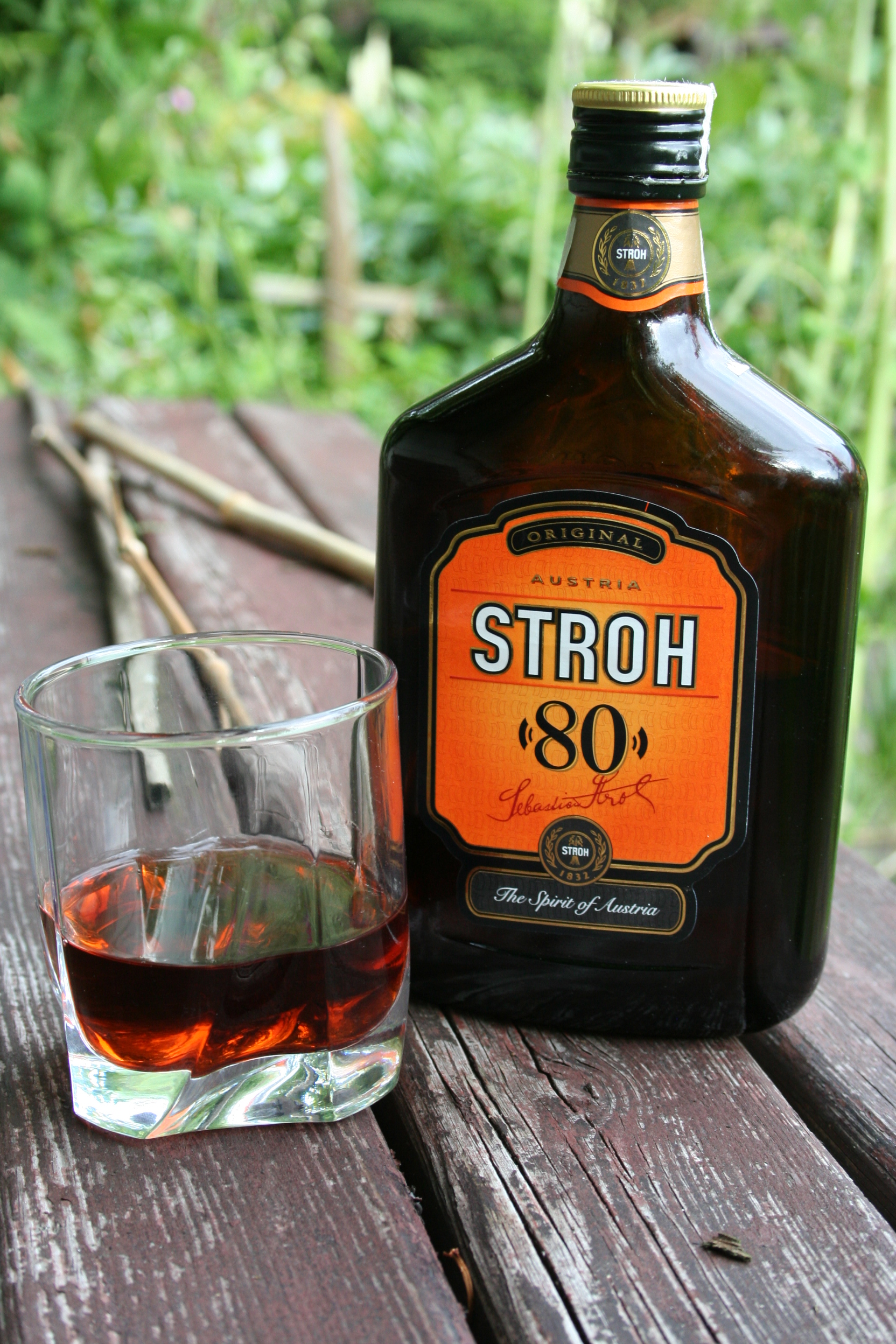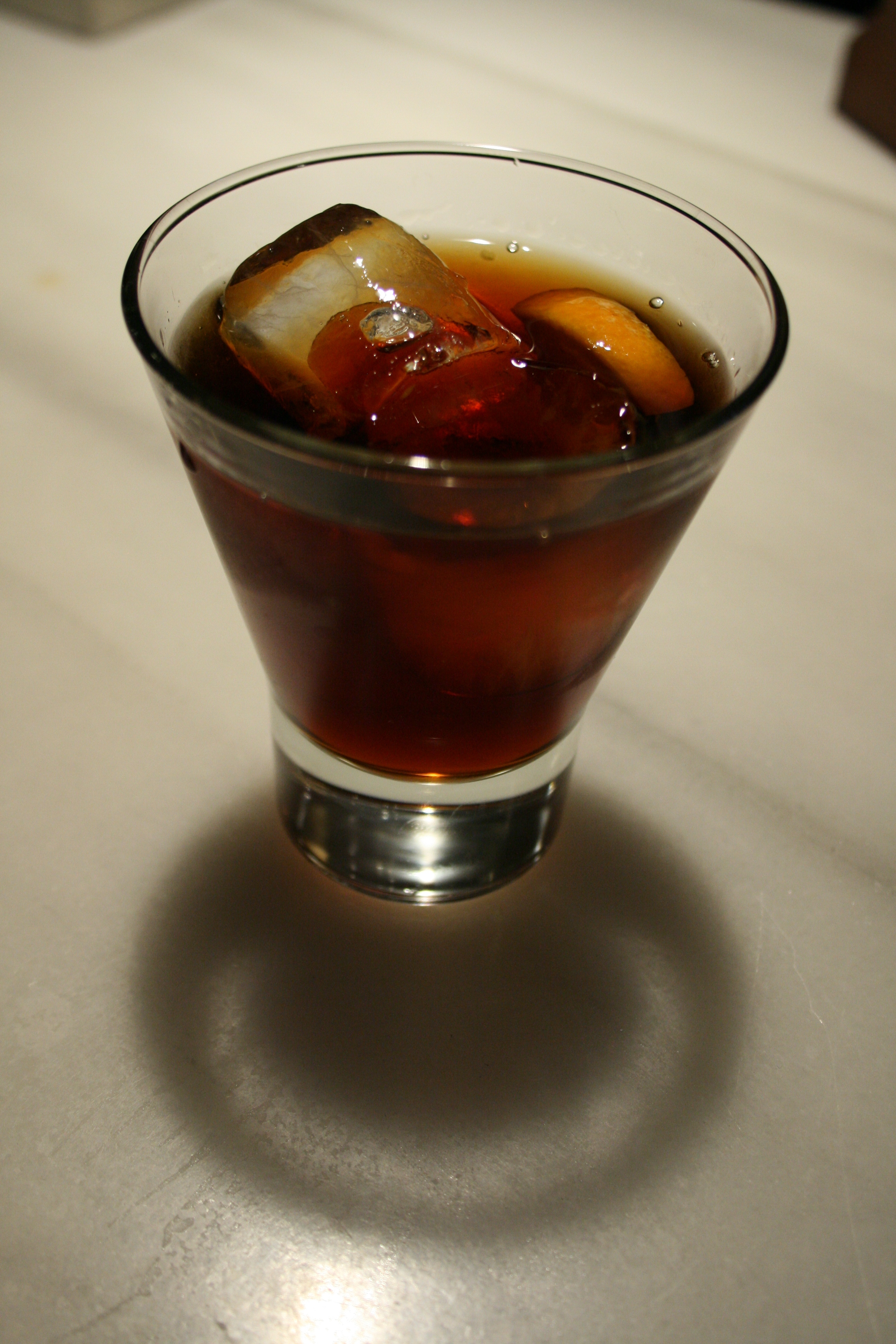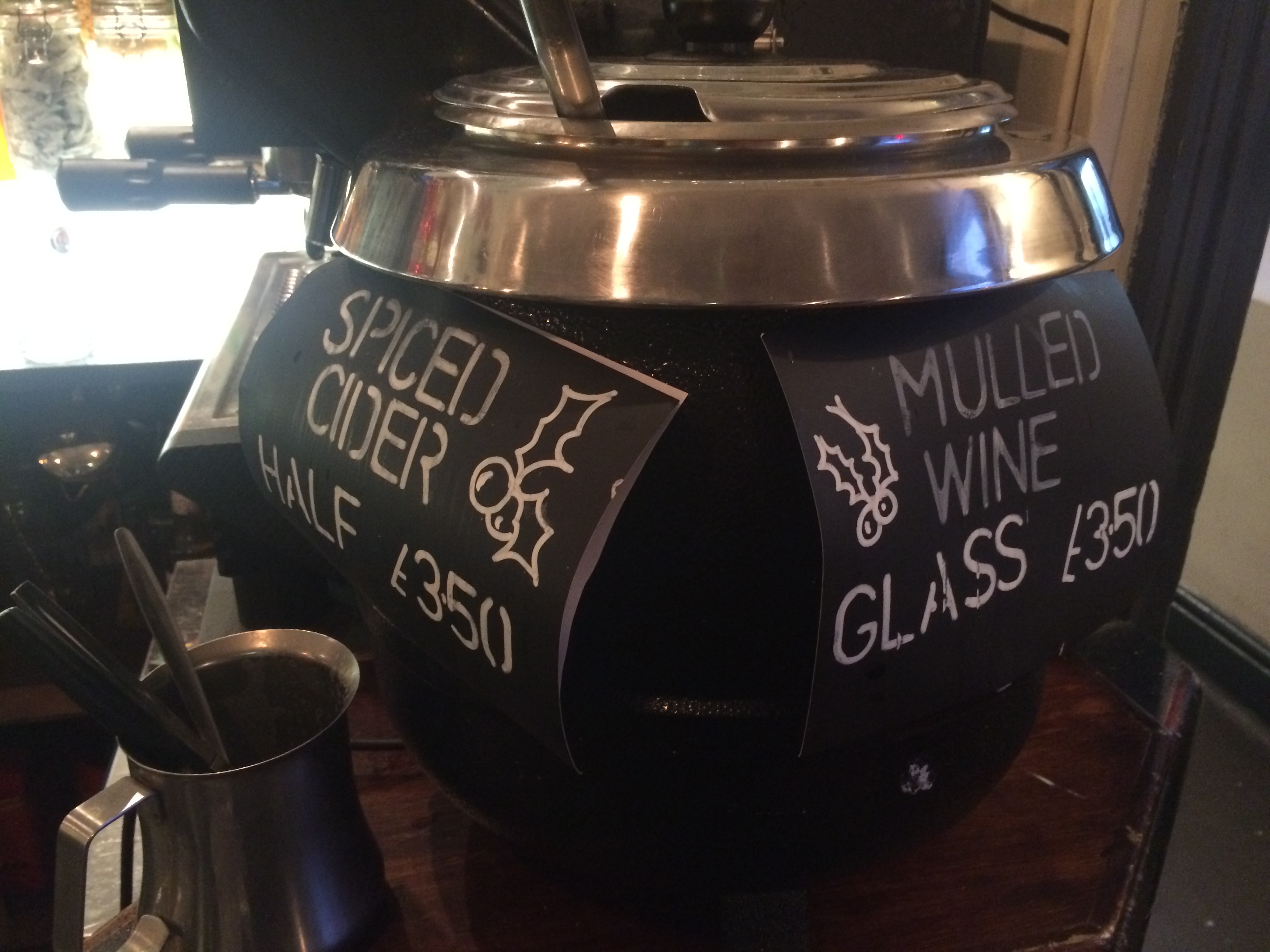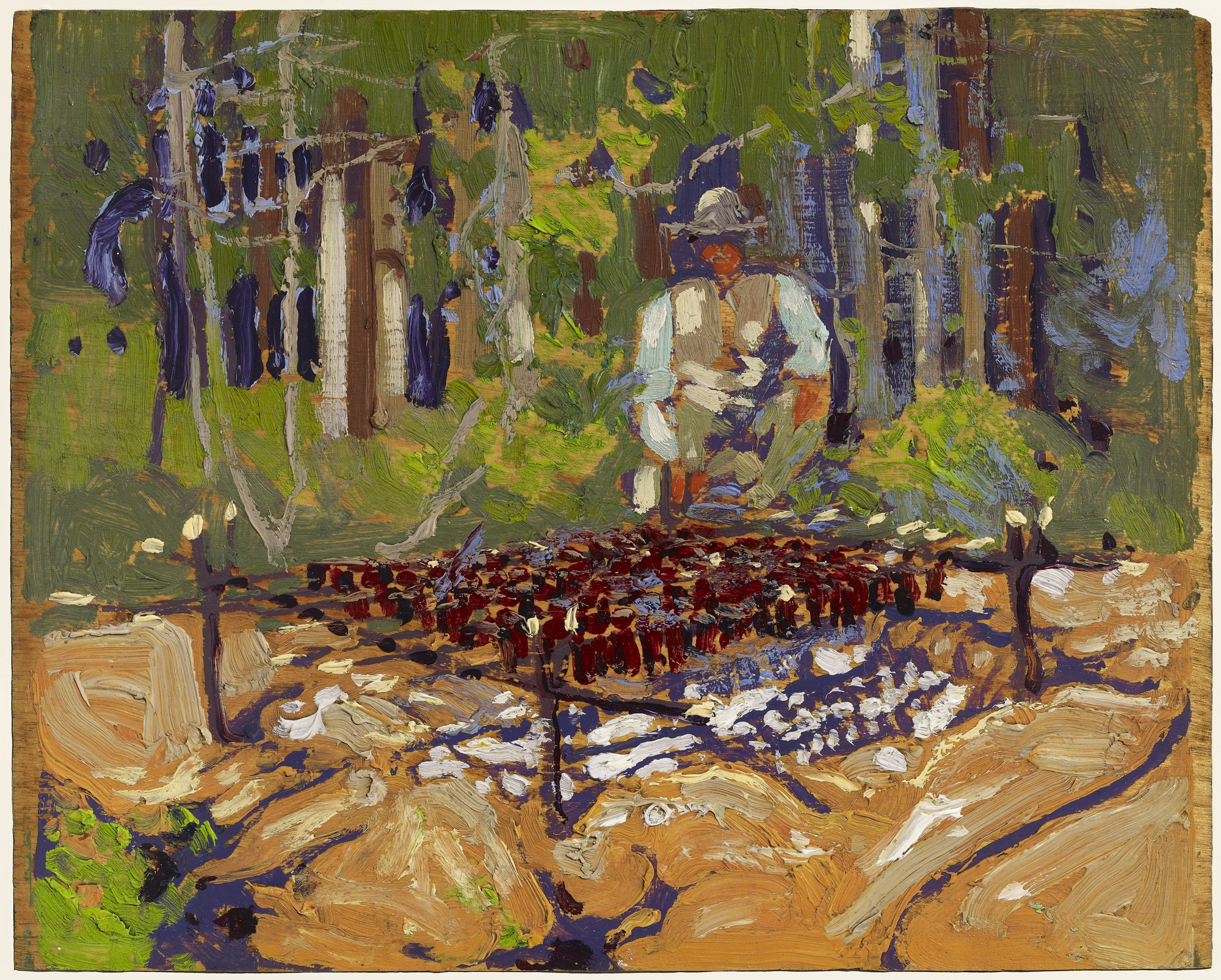|
Jagertee
Jagertee (also Jägertee) is an alcoholic punch historically made by mixing "Inländer-Rum" with spiced black tea. It is served warm and is typically consumed during winter in the cold parts of Central Europe. Although Jagertee is easily made at home, ready-made mixtures which already contain spices and sugar are sold in shops. The Austrian rum ''Stroh'' is often used for making it; this brand also produces its own ready-made variety. Jagertee has become a popular ''après-ski'' drink, especially among tourists in the Alps. Jagertee carts sell the beverage outside at ski resorts and winter festivals. Etymology The name ''Jagertee'' (alternatively ''Jagatee'' or ''Jägertee'') is derived from the Austro-Bavarian pronunciation of the standard German ''Jäger'' "hunter" + ''Tee'' "tea". According to EC Regulation 110/2008, Annex III, No. 32, it is a Protected Designation of Origin reserved for the beverage made in Austria. Therefore, varieties made in Germany are sold under name ... [...More Info...] [...Related Items...] OR: [Wikipedia] [Google] [Baidu] |
Stroh
Stroh Austria GmbH () is an Austrian manufacturer of liquors, especially spiced rums and high-proof rum-like drinks used in warm drinks and cooking. The Stroh brand is one of the best-known spirits from Austria. The (technically incorrect) term ''Stroh Rum'' has colloquially become a generic synonym for spirits with a similarly high alcohol content in List of territorial entities where German is an official language, Germanic speaking regions. Background As Austria-Hungary had no colonies in tropical regions with rum or easy access to rum importation, the imperial government regulated the manufacturing of a rum-like product, where the sugarcane molasses aroma was replaced with a mixture of flavorants and coloring added to alcohol from sugar beets. This class of products was named ''Inländer-Rum'' (literally "domestic rum"). It resulted in a distinctive product smelling primarily of butterscotch and vanilla. It became a regional specialty, available from several brands, in ... [...More Info...] [...Related Items...] OR: [Wikipedia] [Google] [Baidu] |
Gunfire (drink)
Gunfire (or gun-fire) is a British caffeinated alcoholic drink, a cocktail made of black tea and rum. It has its origins in the British Army and is also used as a name for early morning tea. History British Army It is unknown when gunfire was concocted, but it is known that it was mixed by British Army soldiers during the 1890s. Gunfire is served by Officer (armed forces), officers and non-commissioned officers to lower ranks before a morning attack (as a form of Dutch courage) and as a celebration before a Passing out (military), Passing out parade. It is also traditionally served to soldiers in their beds by their officers on Christmas Day at reveille if they are deployed over Christmas. Individual regiments may carry out the ritual on other days: for example, in the Royal Tank Regiment gunfire is served on Battle of Cambrai (1917), Cambrai Day; in the Queen's Royal Hussars on Battle of Balaclava, Balaclava Day and Saint Patrick's Day; and in the Royal Dragoon Guards gunfir ... [...More Info...] [...Related Items...] OR: [Wikipedia] [Google] [Baidu] |
Protected Geographical Status
Three European Union schemes of geographical indications and traditional specialties, known as protected designation of origin (PDO), protected geographical indication (PGI), and traditional speciality guaranteed (TSG), promote and protect names of agricultural products and foodstuffs, wines and spirits. Products registered under one of the three schemes may be marked with the logo for that scheme to help identify those products. The schemes are based on the legal framework provided by the EU Regulation No 1151/2012 of the European Parliament and of the Council of 21 November 2012 on quality schemes for agricultural products and foodstuffs. This regulation applies within the EU as well as in Northern Ireland. Protection of the registered products is gradually expanded internationally via bilateral agreements between the EU and non-EU countries. It ensures that only products genuinely originating in that region are allowed to be identified as such in commerce. The legislation fi ... [...More Info...] [...Related Items...] OR: [Wikipedia] [Google] [Baidu] |
Blended Tea , a word formed from parts of other words
* Consonant blend, a cluster of consonants without an intervening vowel
A blend is a mixture of two or more different substances. Blend may also refer to: Arts and entertainment * ''Blend'' (album), a 1996 album by BoDeans * The Blend (Sirius XM), a North American satellite radio channel * "Blend", a 2017 song on ''Party'' (Aldous Harding album) Computing * .blend (file format), used by Blender, a 3D graphics tool * Microsoft Blend, a UI design tool for WPF and Silverlight Linguistics * Blend word In linguistics, a blend—also known as a blend word, lexical blend, or portmanteau—is a word formed by combining the meanings, and parts of the sounds, of two or more words together. Other uses *[...More Info...] [...Related Items...] OR: [Wikipedia] [Google] [Baidu] |
Punch (drink)
The term punch refers to a wide assortment of drinks, both non-alcoholic and Alcoholic drink, alcoholic, generally containing fruits or Juice, fruit juice. The drink was introduced from the Indian subcontinent to Kingdom of England, England by employees of the East India Company in the late 17th century.Edwards, Graham and Sue. ''The Language of Drink'', Alan Sutton Publishing, 1988. Punch is usually served at Party, parties in large, wide bowls, known as ''punch bowls''. In the United States, federal regulations provide the word "punch" to describe commercial beverage products that do ''not'' contain fruit or fruit juice. The term is used to label artificially flavored beverages, with or without natural flavorings, which do not contain fruit juice or concentrate in significant proportions. Thus a product labeled as "fruit punch" may contain no fruit ingredients at all. Etymology The word is commonly said to come from Hindi language, Hindi पाँच (''pāñch''), meaning ... [...More Info...] [...Related Items...] OR: [Wikipedia] [Google] [Baidu] |
Glühwein
Mulled wine, also known as spiced wine, is an alcoholic drink usually made with red wine, along with various mulling spices and sometimes raisins, served hot or warm. It is a traditional drink during winter, especially around Christmas. It is usually served at Christmas markets in Europe, primarily in Germany, the Czech Republic, Austria, Switzerland, Northern Italy, Slovenia, Croatia, Hungary, Romania, the Nordic countries, the Baltic countries, Great Britain and France. There are non-alcoholic versions of it. Origins The first record of wine being spiced and heated can be found in Plautus' play ''Curculio'', written during the 2nd century BC. The Romans travelled across Europe, conquering much of it and trading with the rest. The legions brought wine and viticulture with them up to the Rhine and Danube rivers and to the Scottish border, along with their recipes. The Forme of Cury, a medieval English cookery book from 1390, which mentioned mulled wine, says: "Pur fait Ypo ... [...More Info...] [...Related Items...] OR: [Wikipedia] [Google] [Baidu] |
Mulled Wine
Mulled wine, also known as spiced wine, is an alcoholic drink usually made with red wine, along with various mulling spices and sometimes raisins, served hot or warm. It is a traditional drink during winter, especially around Christmas. It is usually served at Christmas markets in Europe, primarily in Germany, the Czech Republic, Austria, Switzerland, Northern Italy, Slovenia, Croatia, Hungary, Romania, Nordic countries, the Nordic countries, the Baltic countries, Great Britain and France. There are Non-alcoholic drink, non-alcoholic versions of it. Origins The first record of wine being spiced and heated can be found in Plautus' play ''Curculio (play), Curculio'', written during the 2nd century BC. The Romans travelled across Europe, conquering much of it and trading with the rest. The legions brought wine and viticulture with them up to the Rhine and Danube rivers and to the Scotland, Scottish border, along with their recipes. The Forme of Cury, a medieval English cookery b ... [...More Info...] [...Related Items...] OR: [Wikipedia] [Google] [Baidu] |
Poaching
Poaching is the illegal hunting or capturing of wild animals, usually associated with land use rights. Poaching was once performed by impoverished peasants for subsistence purposes and to supplement meager diets. It was set against the hunting privileges of nobility and territorial rulers. Since the 1980s, the term "poaching" has also been used to refer to the illegal harvesting of wild plants. In agricultural terms, the term 'poaching' is also applied to the loss of soils or grass by the damaging action of feet of livestock, which can affect availability of productive land, water pollution through increased runoff and welfare issues for cattle. Stealing livestock, as in cattle raiding, classifies as theft rather than poaching. The United Nations' Sustainable Development Goal 15 enshrines the sustainable use of all wildlife. It targets the taking of action on dealing with poaching and trafficking of protected species of flora and fauna to ensure their availability for present ... [...More Info...] [...Related Items...] OR: [Wikipedia] [Google] [Baidu] |
Grog
Grog is a term used for a variety of alcoholic beverages. Origin and history Popularization of rum and invention of grog Following Invasion of Jamaica, England's conquest of Jamaica in 1655, rum gradually replaced beer and brandy as the drink of choice for the Royal Navy. The prior ration of eight pints of beer was replaced with a ration of one half-pint of spirits. In 1740, to minimise the subsequent illness, drunkenness, and disciplinary problems, Vice-admiral (Royal Navy), British Vice-Admiral Edward Vernon ordered that the daily rum issue of of rum be mixed with of water, a water-to-rum ratio of 4:1, with half issued before noon and the remainder after the end of the working day. This both diluted Drunkenness, its effects and accelerated its spoilage, preventing hoarding of the allowance. The mixture of rum and water became known as a "grog". This procedure became part of the official regulations of the Royal Navy in 1756 until the reduction of the ration to the "tot" in ... [...More Info...] [...Related Items...] OR: [Wikipedia] [Google] [Baidu] |
EUR-Lex
EUR-Lex is the official online database of European Union law and other public documents of the European Union (EU), published in 24 official Languages of the European Union, languages of the EU. The Official Journal of the European Union, Official Journal (OJ) of the European Union is also published on EUR-Lex. Users can access EUR-Lex free of charge and also register for a free account, which offers extra features. History Data processing of legal texts at the European Commission started way back in the 1960s, still using Punched card, punch cards at the time. A system was being developed to capture relationships between documents and analyse them to extract and re-use metadata, but also to make retrieval easier. Through the years, the system and its scope grew as the Commission started collaborating with other institutions of the European Union and as the Union started Enlargement of the European Union, expanding. It was named CELEX () and soon became a well-used interinstit ... [...More Info...] [...Related Items...] OR: [Wikipedia] [Google] [Baidu] |
European Community
The European Economic Community (EEC) was a regional organisation created by the Treaty of Rome of 1957,Today the largely rewritten treaty continues in force as the ''Treaty on the functioning of the European Union'', as renamed by the Lisbon Treaty. aiming to foster economic integration among its member states. It was subsequently renamed the European Community (EC) upon becoming integrated into the Three pillars of the European Union, first pillar of the newly formed European Union (EU) in 1993. In the popular language, the singular ''European Community'' was sometimes inaccurately used in the wider sense of the plural ''European Communities'', in spite of the latter designation covering all the three constituent entities of the first pillar. The EEC was also known as the European Common Market (ECM) in the English-speaking countries, and sometimes referred to as the European Community even before it was officially renamed as such in 1993. In 2009, the EC formally ceased to ... [...More Info...] [...Related Items...] OR: [Wikipedia] [Google] [Baidu] |







